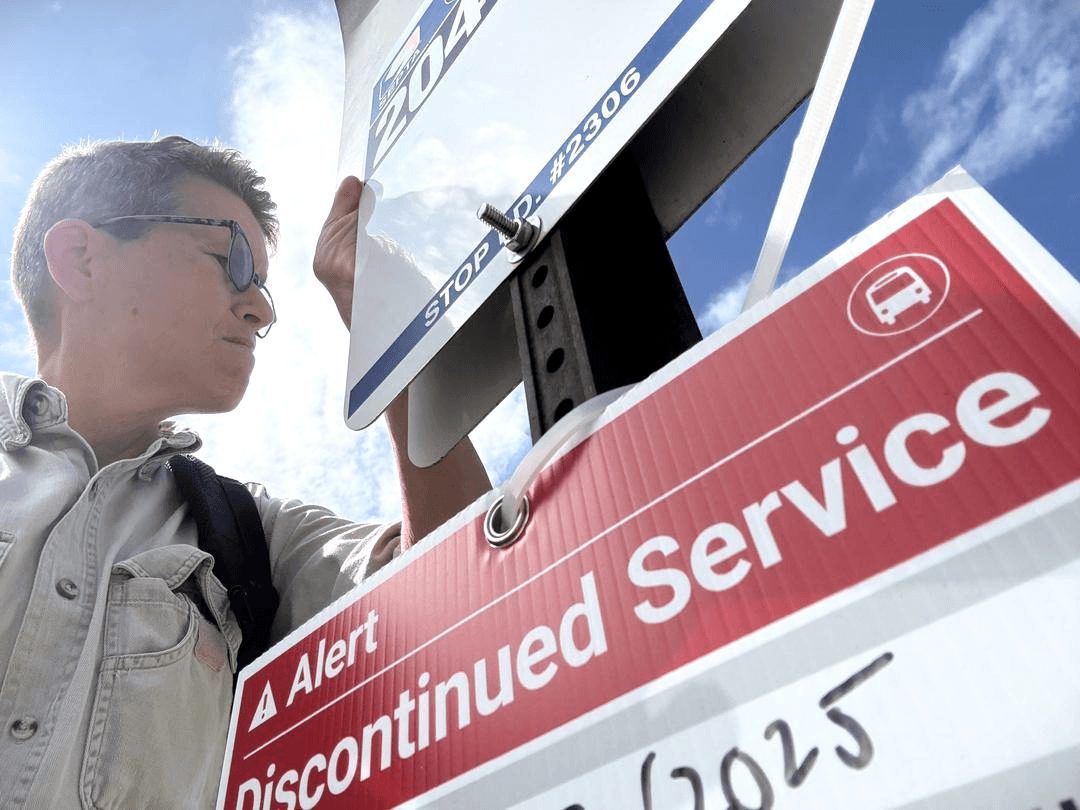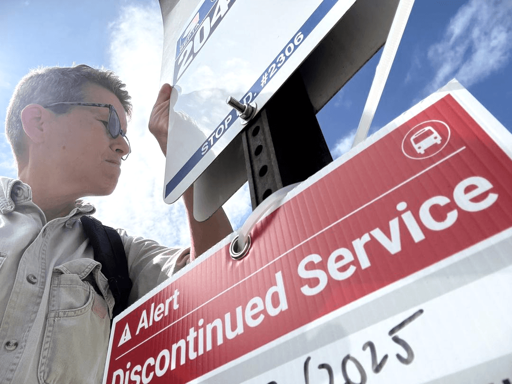
Image by Lee Hall.
A recent court order put the brakes on service cuts and 21.5% fare hikes from the Southeastern Pennsylvania Transit Authority (SEPTA). The transit agency has been hamstringing its riders, claiming Pennsylvania lawmakers have left SEPTA with a funding deficit of more than $200 million.
Philadelphia’s service-cutting plan is reportedly more drastic than any other plan laid out by a major U.S. transit agency so far.
To make matters more grotesque, SEPTA’s service cuts took effect on the first day of the school year, even though tens of thousands of students depend on public transit. After predictable chaos ensued, Philadelphia tapped its own funds to support transit routes that serve schools.
Who knows what’s next? Workers, students, people who can’t or don’t drive, and those just trying to save the climate…All have been shown just how little our needs and commitments matter.
Now, I wonder. Will our supposed representatives, our purported public servants, spare or eliminate the bus I take to the dentist? In the second week of September, I’m still finding DISCONTINUED SERVICE SEPTEMBER 27, 2025 placards along the route. As I write, SEPTA schedules are still 20% reduced.
All the exhortations over the past year — Save the routes! Call your lawmakers! — what have those done? Why did we take part in focus group meetings about improving public transit?
Calling Out the Widespread Devotion to Private Cars
Car dependency habituates us to social patterns that devalue empathy. The automotive economy caters to consumers (not to people), both stimulating and feeding off a continual quest for efficiency, immediate gratification, and control.
The state identifies us by our driving status. As licensed drivers, we become card-carrying supporters of extractive companies. And when we age out of driving, who are we? If riding with each other were considered a desirable thing, getting older would be easier.
Social transit is conducive to human interaction and mutual assistance. It’s conducive to sparing habitat and respecting biodiversity. It’s also conducive to keeping the Atlantic Meridional Overturning Circulation (AMOC) intact, to avert climate tipping events. Trains don’t emit anything close to the volume of greenhouse gases produced through cars—even electric cars. Why isn’t social transit considered a desirable thing?
“Lagging ridership” along with strained funding is cited to justify service cuts not just in Philadelphia, but in other cities as well. The Chicago Transit Authority is considering shutting down multiple train lines and bus routes, pointing to a $770 million budget shortfall. Pittsburgh could soon wind down more than a third of its regional transit services, pointing to its own $100 million deficit. Dallas says cuts could happen next February, while a similar drama plays out in San Francisco.
We Need to Bolster Our Nighttime Transit, Not Zero It Out
SEPTA’s “funding crisis” webpage, as I write, still warns of mass layoffs and service cuts ahead, and the closure of 66 stations. Also planned is a 9 p.m. curfew on rail services, some of which now run until 1.30 am.
It’s not hard to imagine the impact on medical teams, restaurant staff, actors and playhouses, night-shift workers of all sorts, passengers on evening flights, as well as the people who work for SEPTA itself. It’s also not hard to imagine the effect on our climate, and to think of the lost opportunity to do something respectful for Earth for once.
Car dependency expands everything that separates us from each other and the living world. It exacerbates social divisions of all kinds. To reverse this trajectory, political messaging is necessary but not sufficient. The strength of a public transit system depends on people getting out of the cars, getting onto the bus, and showing that we consider riding with each other a desirable thing.
The post Southeastern Pennsylvania Transit Authority Disdain for Riders appeared first on CounterPunch.org.
From CounterPunch.org via this RSS feed


